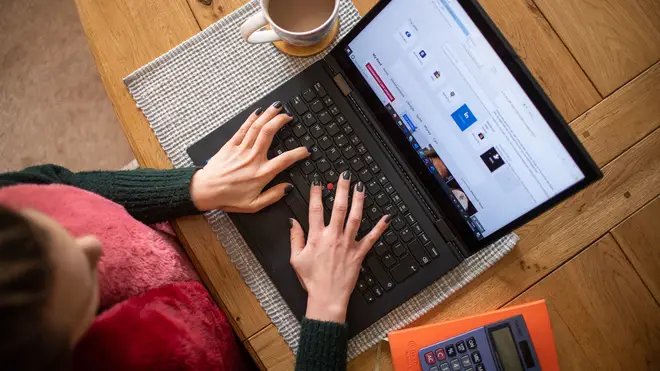
Iain Dale 7pm - 10pm
22 July 2021, 00:04

The House of Lords Covid-19 Committee said ministers did not respond to eight out of 24 points set out in a recent report.
Peers have criticised the Government for failing to respond to a series of digital “hybrid” recommendations on employment rights and children’s education.
The House of Lords Covid-19 Committee said it was left “extremely disappointed” after eight out of 24 recommendations it made were not even acknowledged.
A report published in April examined the rapid shift towards greater offline and online life brought on by the pandemic, across multiple areas such as e-commerce, public services like the NHS, remote working, and automation by businesses.
While Government addressed the majority of points, some “very substantial” recommendations were neglected.
Peers were dissatisfied that calls to consult on strengthening employment rights were not considered, after they highlighted issues including the right to switch-off and the costs of remote working.
They also received no response to concerns about the impact on children’s education.
Peers had suggested that research should be carried out to understand the different experiences of children from different communities, and urged Government to work with local authorities and schools to fund a specific support programme so that all children have an adequate internet connection and suitable digital devices for use at home.
Committee chairwoman Baroness Martha Lane-Fox told the PA news agency: “Of course we appreciate that this has been an extremely complicated time for Government.
“But the bottom line is that the committee sought to look at the long-term implications, we made constructive suggestions about how to think about this new world we’re living in, this massive acceleration that we’ve been through, and it’s really important that the response takes into careful consideration all those things.”
Baroness Lane-Fox warned there is still “massive inequality” in both access to technology and use of it, and fears some may be left behind in the new “fast-tracked world”.
She told PA: “Many people are not part of this new world and, more importantly even perhaps, if we’re going to be the best kind of country out of all of this, we need it to reflect where we’re living, we’re living in 2021 not 1821, we need to make sure that for Britain to be able to compete, for Britain to have the skills it needs, for citizens to have access to services that are easy to use, that this hybrid reality is reflected very carefully in the Government’s thinking.
“This is now absolutely core to how we see ourselves as a country and we are asking the Prime Minister to put thinking about this hybrid world at the heart of how he thinks about global Britain.”
The committee wants the Government to provide a further response addressing the eight points it failed to acknowledge.